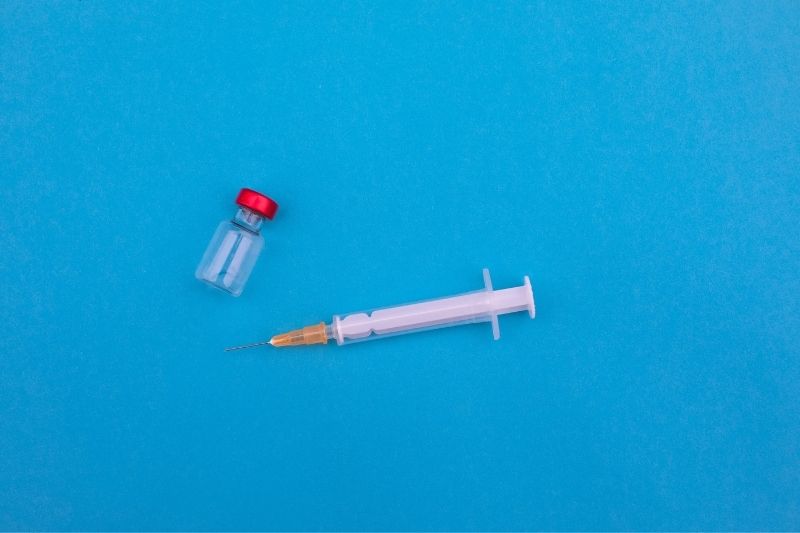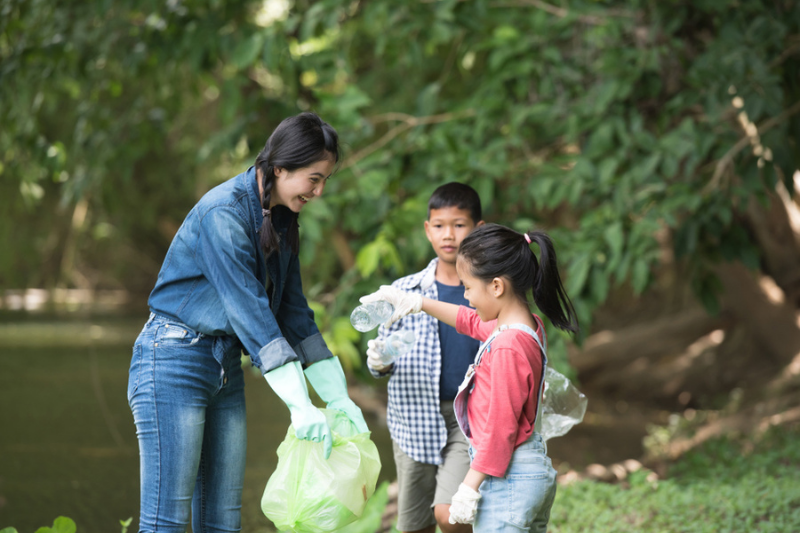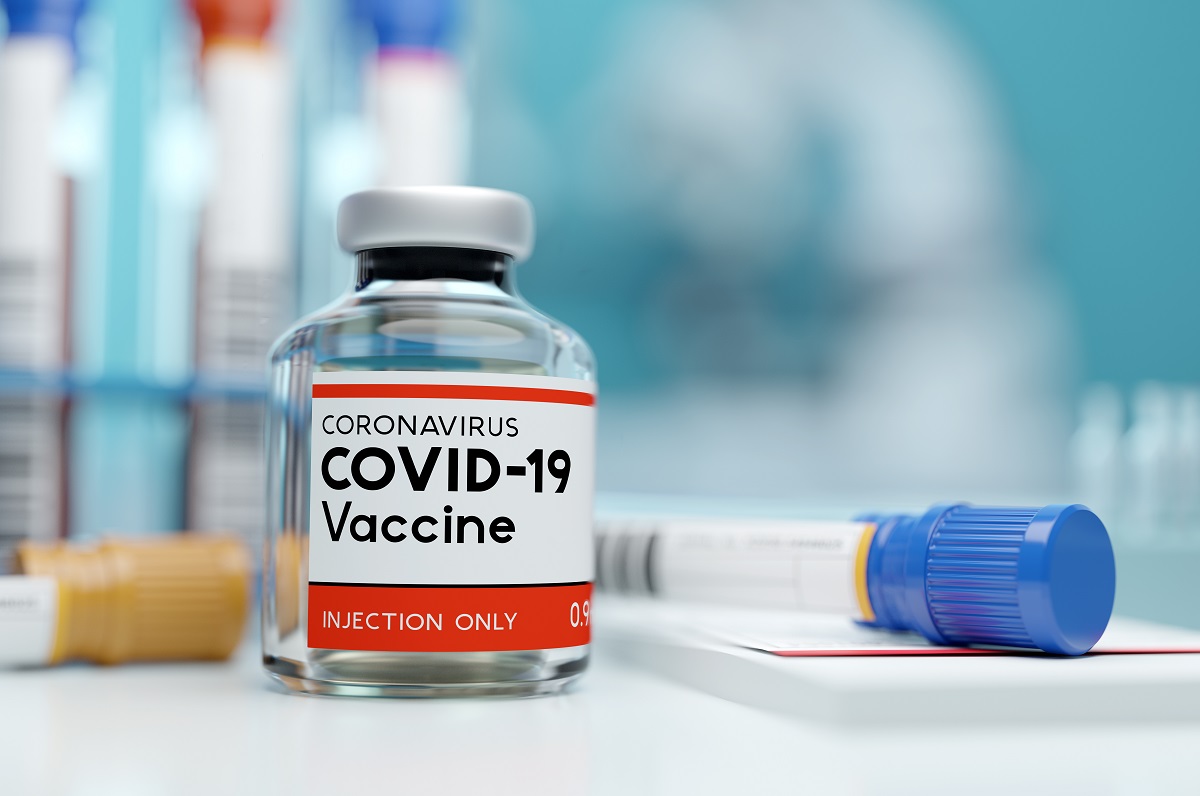How safe is the COVID-19 vaccine? Are the vaccines effective? Should children be vaccinated? Dr David Owens at OT&P answers some of the most common questions around the COVID-19 vaccine in Hong Kong so that you can make an informed decision for both yourself and your family.
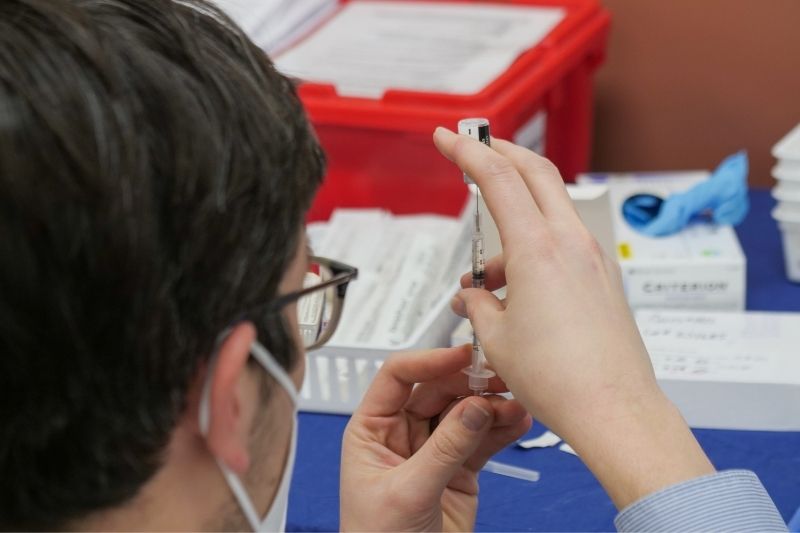
Are the COVID-19 vaccines effective?
Answer: YES. They are extremely effective.
It is easy to get lost in debates around the percentage efficacy of the different vaccines for COVID-19. I have previously explained the process of vaccine trials and in particular the difficulty in comparing trials with different outcome measures. We now have a huge amount of data of effectiveness from large population studies. These studies consistently show the vaccines to be extremely effective.
Ultimately all vaccinations have their impact in one of two ways:
1. Direct immunity:
This deals with the question: If I am immunized, how less likely am I to die or become seriously ill from a disease? This is about benefit to the individual.
2. Indirect (Herd) immunity:
This deals with the question: If lots of people in the population are vaccinated will people who have not been vaccinated also be protected? This is a measure of benefit to the population.
All of the vaccines seem to be very good at reducing the risk of serious illness and death in vaccinated individuals. Here is some data from Israel which now has a very large data set.
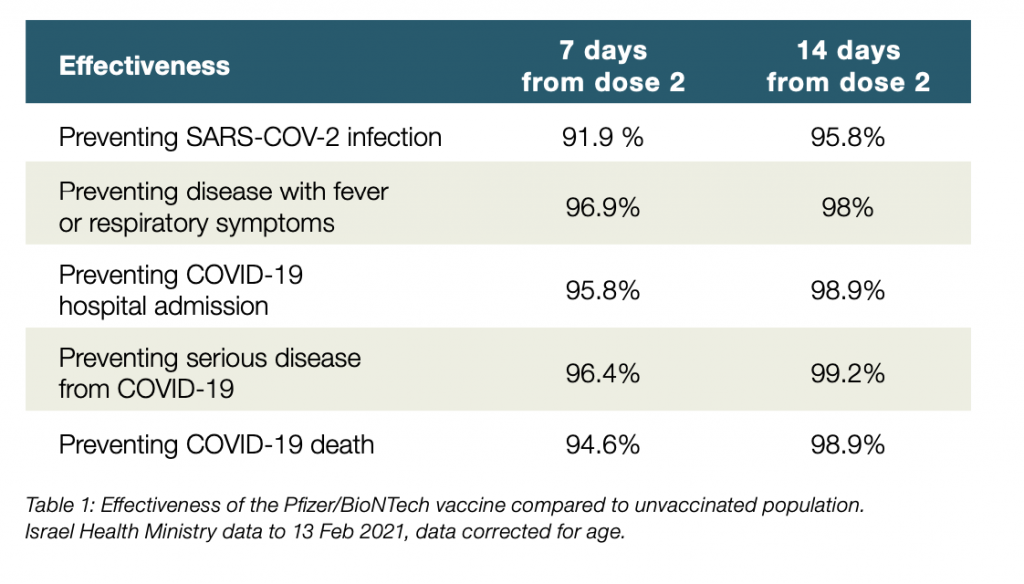
Table 1: Effectiveness of the Pfizer/BioNTech vaccine compared to unvaccinated population. Israel Health Ministry data to 13 Feb 2021, data corrected for age.
We also have increasing evidence that the vaccines reduce milder cases and transmission to some degree. I discussed the vaccine studies in a recent Podcast with Professor Ben Cowling.
Are the COVID-19 vaccines safe?
Answer: YES
We now have data from many millions of vaccine doses and the side effect profile seems to be comparable to many other vaccines which are given routinely. Some mild side effects are relatively common.
The RNA vaccines (BioNTech in Hong Kong) generally have slightly more mild side effects and a higher incidence of severe allergic reaction then the more traditional vaccines (Sinovac). It is estimated that severe allergic reaction occurs in between 4 – 11 cases per million doses in BioNTech in comparison to 1 per million in Sinovac although there is significantly more published data for BioNTech and this may change over time.
The side effect data provided by the CHP and Department of Health is described in more detail in the following leaflets: BioNTech and Sinovac.
OT&P has full confidence in the expert medical committee reviewing potential vaccine complications in Hong Kong. It is prudent that all potential side effects are investigated but it is our expectation that the vaccine program will continue and that vaccinations will ultimately be shown to be safe.
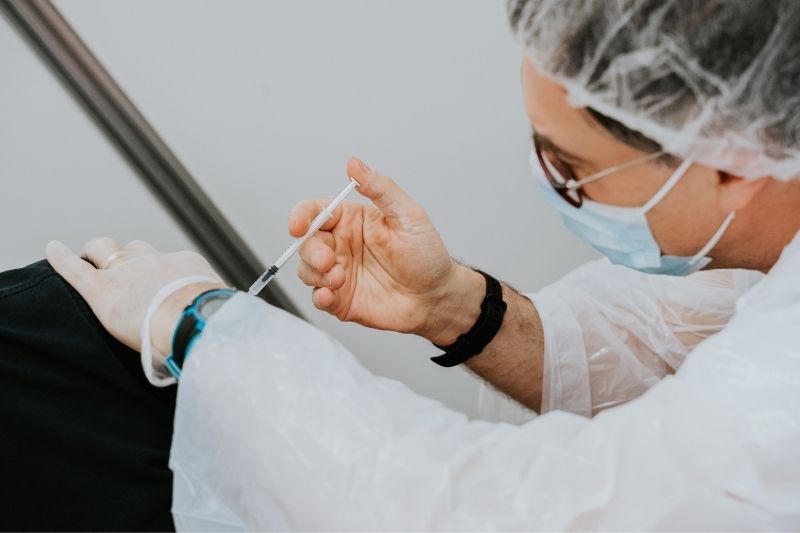
Will the vaccines be effective against the new mutations?
We have explained in a previous article the concept of new viral mutations. Some of these mutations are showing evidence of early escape from current vaccinations. It seems likely from current evidence that vaccines will continue to be effective, although possibly not to the same degree. As in the original question about effectiveness, they still seem to be good at preventing severe disease, but lower effectiveness may negatively impact population immunity. The good news here is that widespread genetic tracing of the virus allows early identification of potentially important variants and it will be possible to modify RNA vaccines against these variants, if and when they become clinically relevant. We are now able to predict, at least to some degree, the likely impact of the genetic mutations on immunity by understanding which components of the RNA structure are impacted. Research is ongoing in this area internationally.
Hong Kong has so few infections, do we really need to vaccinate so many people?
The majority of experts in virology believe it is unlikely that the SARS-COV2 virus will now simply disappear. It is not impossible, but the ability of the virus to hide in symptomless individuals and also in animal reservoirs mean it is most likely to stay with us. That being the case, we really have only two options. The first is to stay locked down for ever with border controls and intermittent social distancing measures. The second is to develop immunity within the population. The acquisition of immunity can only be achieved by natural infection or immunization. Experience from other populations has shown that allowing the infection to spread has the potential to rapidly overwhelm health systems leading to high population mortality. Characteristics of our densely populated city make this option a nonstarter from a public health perspective.
High levels of population immunity via vaccination represents the best chance to protect the health system whilst removing existing public-health controls.

I understand OT&P will be giving COVID-19 vaccines, can I pay privately for vaccination?
Answer: No
The vaccination program will be run by the government and all vaccinations will be free. We will be continuing to support the Department of Health by assisting in this process. We will be allocated a supply of vaccines which can only be given to patients within the eligible groups. In the first instance OT&P will ONLY have access to Sinovac vaccine. We will commence vaccination in the next couple of weeks. Patients of OT&P who wish to take BioNTech vaccines should book online via a government centre. The process is simple and very efficient.
Should children be vaccinated?
Answer: No
There is currently no evidence for any COVID-19 vaccinations in children under 16 years (18 years for Sinovac) although vaccine trials in children are now underway. There is good evidence that risks of COVID-19 are very low in young people. They are not zero, but any public health intervention must involve a risk-benefit analysis. It is unlikely that there will be widespread vaccination of young people until we have greater evidence of the effectiveness and safety of the vaccinations, and a better understanding of the real risks of the disease process in children.
Is the vaccine safe in pregnancy and breast feeding?
We do not yet have adequate evidence of the safety of the vaccines in pregnancy and during breast feeding. As with children it is unlikely that vaccination will be advised in these situations until we have much more data available. Every public health intervention involves a risk benefit analysis and this is especially the case when community infections remain so low. Pregnant or nursing mothers who are in higher risk groups or in situations of higher community transmission should discuss the risk benefits of vaccination with their doctor.
I have had COVID, should I still be vaccinated?
Answer: YES
It is generally advised to delay vaccination until at least one month after COVID-19 infection but previous infection is not a contraindication to vaccination. Indeed, subsequent immunisation appears to effectively boost natural immunity.
Can I take more than one type of COVID-19 vaccination?
Immunisation should be completed with a single vaccination type so that the first and second dose will be the same brand of vaccine. In the first instance the government will provide one series of vaccination for every eligible individual in Hong Kong. It may be that in the future we give subsequent boosters with different vaccines but this will be dependent on further research. As previously discussed the RNA vaccines may be used to cover new or evolving variants in the future.
Is it possible to choose which vaccine to take?
Answer: YES
The Hong Kong Government has indicated that individuals can choose which vaccine they wish to take. OT&P will only be able to give Sinovac in our clinics. Both Sinovac and the BioNtech vaccine are available in government vaccination centres. Information about the government program and vaccination booking is available here. AstraZeneca vaccination should be available around the Summer.
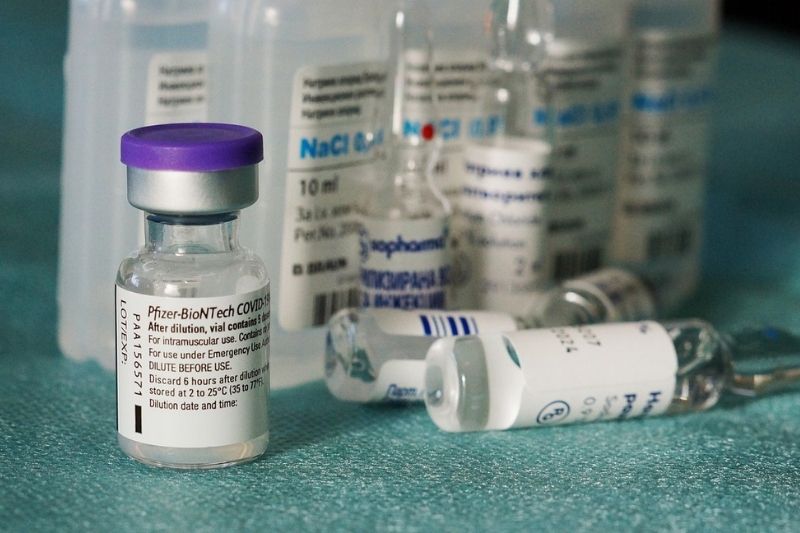
Is the BioNTech vaccine available in Hong Kong the same as the Pfizer vaccine in Europe and the US?
Answer: YES
The BioNTech vaccine is manufactured in Europe and flown directly to Hong Kong from Frankfurt. Fosun has a distribution licence for the BioNTech vaccine in China. The vaccines given in Hong Kong are exactly the same as those given in Europe.
Can the BioNTech vaccine change our DNA?
Answer: No
The BioNTech vaccine is a messenger RNA vaccine. The mRNA enters the outside of the cell (the cytoplasm). It does not enter the nucleus and it does not (and is not able to) integrate or change the DNA. The code of the mRNA tricks the cells into making spike protein and it is this protein which produces the immune response. The mRNA in the vaccine has a short half-life and is gone from the body in 7-9 days. mRNA vaccine research has been ongoing since the mid 1990’s.

More about OT&P Healthcare
OT&P Healthcare is a Premium Private Healthcare Practice in Hong Kong. Our priority is to help individuals to enhance and optimise their health by providing easy access to a wide range of excellent practitioners and information, supported by management systems and technology that ensure quality of service and value. Our Mission is to provide pre-eminent private healthcare in Hong Kong. We aim to be the best in class fully integrated healthcare service, providing a circle of care for all our patients’ needs.
Related articles:
- COVID-19 Vaccines in Hong Kong (January 2021 update)
- Managing Parenting Stress During Covid-19
- How to Look After Your Health During the Pandemic


